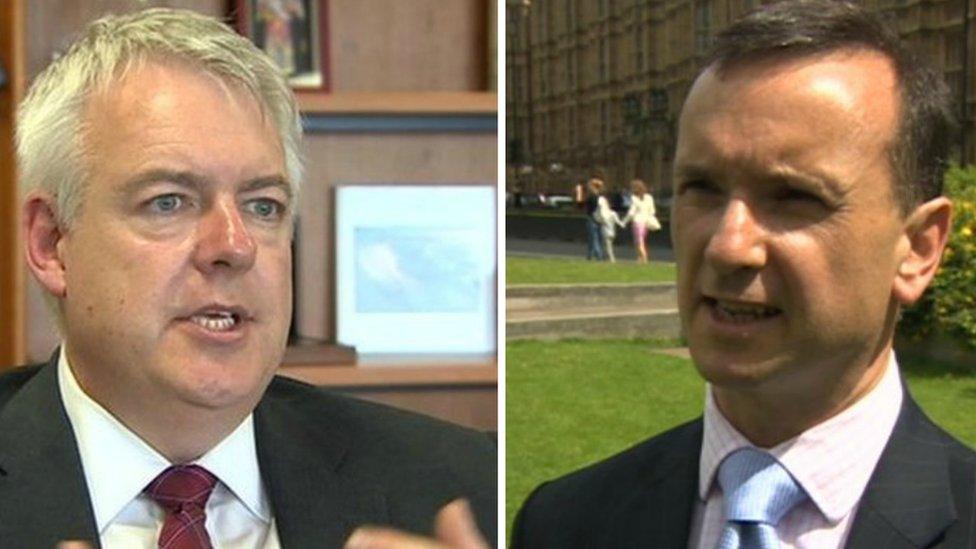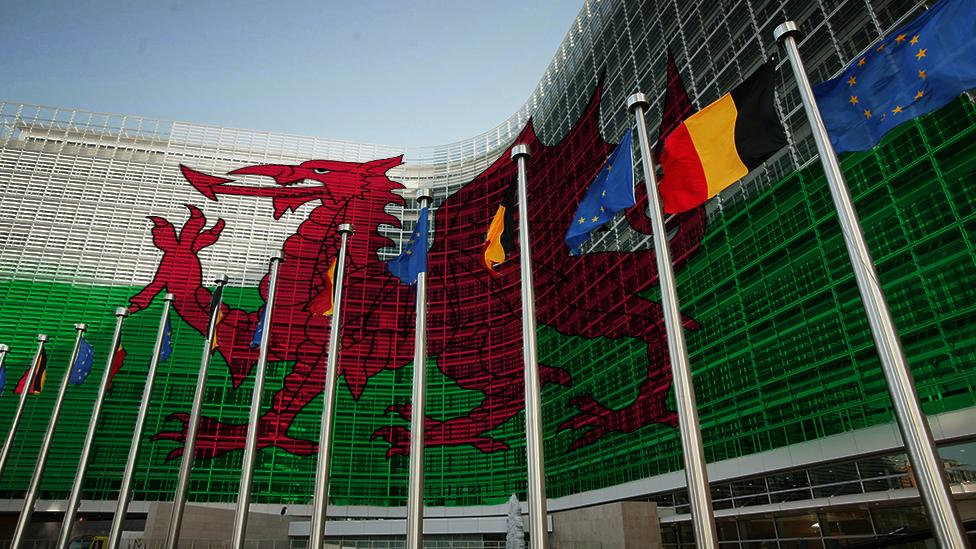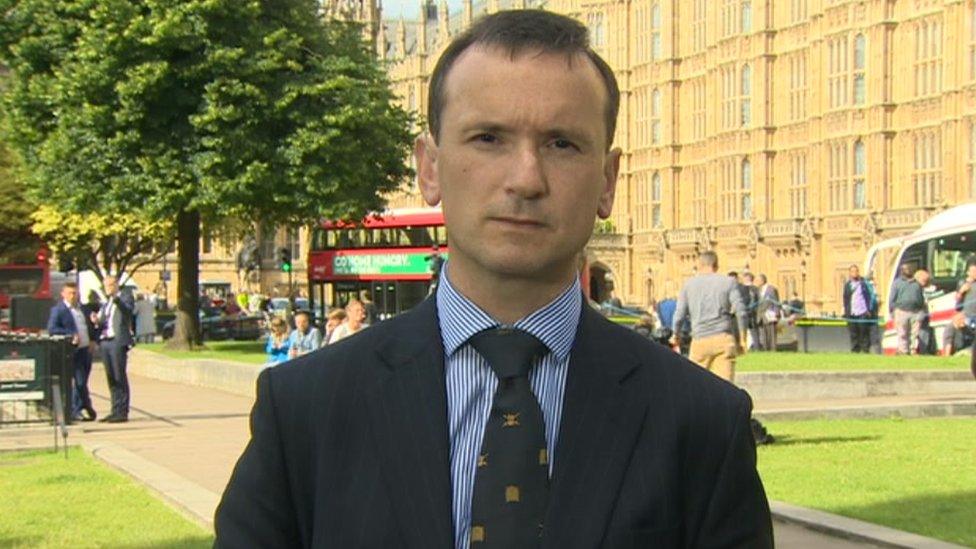What will happen in Wales beyond Brexit?
- Published

The grim-faced, and at times, bewildered response from many in the Welsh political establishment immediately after the referendum is slowly becoming more pragmatic and focused on the future.
Wales voted to leave the EU and yet most politicians called on the public to support the Remain campaign.
For those on the losing side, it was an eye-opening experience.
For the winners, it was vindication they were representing public opinion.
There is an early but growing sense of relief that many of the dire warnings about the economy from those on the Remain side have so far failed to materialise, but all agree it is early days.
Attention is now turning to the negotiations.
First Minister Carwyn Jones and Welsh Secretary Alun Cairns are in agreement the result was a strong message from the public that the free movement of people within the EU has to change.
But the two have different views on the dangers to the Welsh economy related to access to the single market.

While Carwyn Jones speaks of challenges, Alun Cairns talks of opportunities
The first minister believes no longer having tariff-free trade of goods and services poses major problems to prospects for attracting foreign firms to invest in Wales.
The Welsh secretary is keener to stress the potential opportunities, such as being unshackled of the burden of EU regulations, which he believes has held Wales back.
Mr Cairns believes there has never been a more important time for the UK and Welsh governments to work together.
Many will agree on that now, but I suspect it will be pushed to the limit as the full implications of Brexit are worked through.
The Welsh Government will now have to deal with the potential loss of big chunks of its budgets, particularly in areas including apprenticeships and in-work training.
Chancellor Philip Hammond has given some reassurance that pre-planned EU-funded projects would be honoured, but all eyes will now be on the Autumn Statement, which will be the UK government's first major indication of how the nation's finances are likely to be affected.
In the longer term, the debate will get under way in earnest about how to replace EU structural funding in economically deprived communities such as the south Wales valleys.
It is still one of the most striking features of the referendum result in Wales that the communities which received the most EU funding often voted in the greatest numbers to leave.
Top of the agenda for any successor system will be to become more valued by the people it will be designed to help.
- Published24 June 2016

- Published23 June 2016

- Published27 June 2016
